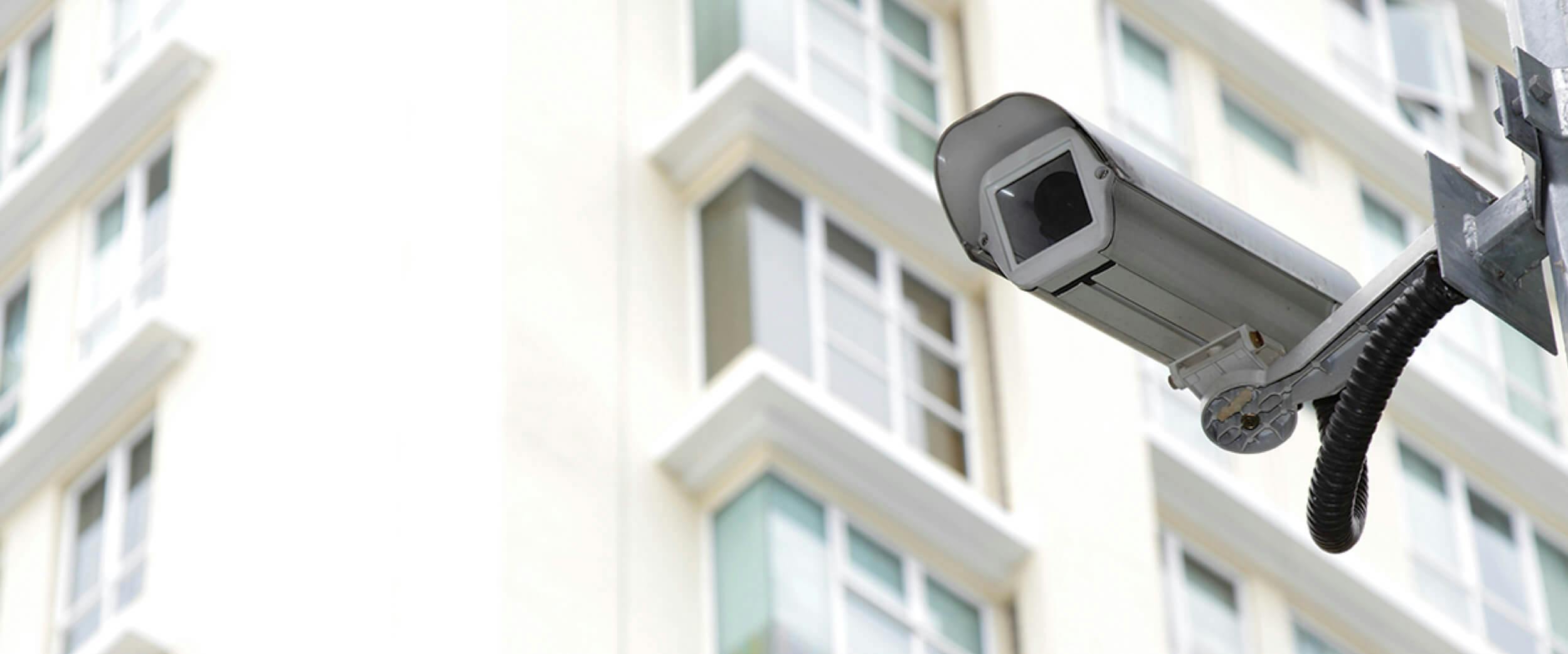
Being a property manager comes with a lot of responsibility. Maintaining your rentals and keeping up with real estate mandates is a challenge on its own—not to mention the anxiety of not knowing how your tenants are treating the property.
Security cameras are one tactic that you can use to protect your investment, keep your units secure, and make sure your tenants are behaving as intended. When it comes to security cameras for rental properties, however, it's not just a matter of plugging it in and walking away—there are a number of legal issues and restrictions.
Before you go out and purchase any expensive equipment, here's what you need to know about security cameras for rental properties.
Security Cameras for Rental Properties
Where Can Property Managers Install Security Cameras?
Hopefully you already know this, but just in case, you're not allowed to record video or take still photos (which many Wi-Fi cameras do) in any area where someone would have a reasonable expectation of privacy. Bedrooms and bathrooms are clearly off-limits, but so are living rooms and common areas. Tenants expect privacy when their front door is closed, so no cameras in the house.
The same expectations of privacy aren't in effect outside of your rental. For the most part, it's legal (and common) to record video in public places. For example, most people are aware that they could be recorded by security cameras on the street or in a public place, or even by Google Maps' Street View cameras while you're in your own yard.
If your neighbors are in close quarters, however, they may not appreciate a security camera if it's pointed toward their home. While different states have different laws about recording, make sure you talk to your neighbors before you install any surveillance equipment. You want them on your side, because they can help to keep your property safe when you're not around.
Are Security Cameras Subject to Wiretapping Laws?
Since most newer cameras record audio as well as video, there are additional considerations to keep in mind when installing security cameras for rental properties. Federal law requires that one person knows they're being recorded. This means you can't eavesdrop or record any conversations that you're not taking part in. However, states have their own laws that may necessitate dual consent.
If you inform potential tenants that they will be recorded, and they elect to move in and engage in conversation in areas where security cameras are located, this can (generally) count as consent. Ultimately, however, your best bet is to familiarize yourself with state and federal laws, and to put a clause in your lease that proves that tenants were aware of the surveillance.
Should You Install Security Cameras for Rental Properties?
Don't let these guidelines discourage you from securing your rental if you decide that a surveillance camera is the ideal security solution for you. However, if you're worried about potential legal implications or intimidating your tenants, there are other options to consider.
Alternative #1: Fake Security Cameras
Fake cameras look just like the real thing, but they're significantly less expensive. A burglar won't know if your camera is real or not--especially with a blinking green light that makes it look like it's "on." Chances are, they won't wait around to find out if it's fake or not. Just like with the real thing, if you install a fake camera oriented toward your neighbor's property, make sure you talk to them first. Let them know that it's fake and they shouldn't have any issues.
Alternative #2: Security Lighting
"Lighting that is triggered by motion offers you a great chance to startle a burglar—if you've ever gotten caught in a motion-sensor floodlight, you've probably experienced that 'deer in headlights' feeling," says David Artman, CEO of The Home Security Super Store.
The best part: timed lights help you save on electric bills, explains Artman. "With the recent proliferation of solar, LED, and motion-sensor security lighting options, you don't have to rack up a high electric bill to feel secure."
Put motion sensors in your walkway or near your front door so they turn on only when necessary. You can also put them on a timer so that they switch off and on at random times.
Alternative #3: Wireless Alarm Systems
Wireless alarm systems are the less expensive, a la carte version of their predecessor: standard wired systems that require installation and maintenance. With wireless systems, you decide how many components you need (think: different sensors and alarms) and you can find a set that works within your budget.
Most wireless alarm kits come with a main console, as well as additional motion detectors that send an alert when someone is on your property. You can also find systems that sync with your smartphone so you'll always know what's going on at your property, no matter where you are.
Reference the Law
If you really want to keep your tenants in check and discourage burglars from hitting your property, research the legal specifications for security cameras for rental properties in your state. You may also want to speak to a lawyer for further clarification and to make sure you won't face any charges. If you'd rather avoid all of the legal jargon, look into an alternative like security lights, fake cameras, and wireless alarm systems.
